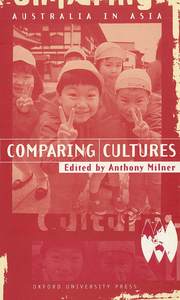Labour relations
Alexander, Paul, Deery, Stephen, Leggett, Chris, Levin, David, Mitchell, Richard, Smith , Wendy, and Young-Ki, Park (1996) Labour relations. In: Milner, Anthony, (ed.) Comparing Cultures. Australia in Asia . Oxford University Press, Melbourne, VIC, Australia, pp. 104-131.
![[img]](https://researchonline.jcu.edu.au/17113/2.hassmallThumbnailVersion/17113_Leggett_1996_Book_Cover.jpg)
|
Image (JPEG) (Book Cover)
- Cover Image
Download (228kB) |
|
|
PDF (Published Version)
- Published Version
Restricted to Repository staff only |
Abstract
[Extract] Western business people, including Australians, who have worked in Asian countries bring back similar observations about what they often term cultural differences. They report a respect for hierarchy, a loyalty to management, a demand for paternalism in their dealings with employees, and an avoidance of confrontation, all of which contrast dramatically with labour relations in Australia. Such features are sometimes thought to give many Asian countries an advantage in labour market terms. The existence of this advantage has encouraged an occasional willingness on the part of Australians to examine Asian models when reforming their own labour system, especially with the Australian media emphasising the disruption and expense incurred as a result of strikes, and warning of the damage Australia is inflicting on its international reputation and export trade. I Western business representatives also speak about a wide range of 'cultural' phenomena that confuse Western managers in Asian countries and lead to misunderstanding and tension in labour relations. In the Philippines, for instance, a common indigenous practice involves management hosting a lavish morning tea in times of conflict with employees; this mends relations and demonstrates both the status and the good will of the employer. In Thailand an employee must never be scolded in public: to abuse someone in this way involves a 'loss of face' for the employee and thus produces tension in the workplace. Rather than being thought of as strong, the manager concerned is seen by employees to be uncivilised, lacking in personal control. In Java, someone of lower social status should not be appointed to a rank in the company above those who have a higher, perhaps hereditary, social status.
| Item ID: | 17113 |
|---|---|
| Item Type: | Book Chapter (Research - B1) |
| ISBN: | 978-0-19-553671-3 |
| Keywords: | labour, industrial relations, Asia |
| Funders: | Australian Research Council |
| Date Deposited: | 01 Sep 2011 01:00 |
| FoR Codes: | 15 COMMERCE, MANAGEMENT, TOURISM AND SERVICES > 1503 Business and Management > 150306 Industrial Relations @ 100% |
| SEO Codes: | 91 ECONOMIC FRAMEWORK > 9104 Management and Productivity > 910401 Industrial Relations @ 100% |
| Downloads: |
Total: 325 Last 12 Months: 6 |
| More Statistics |



